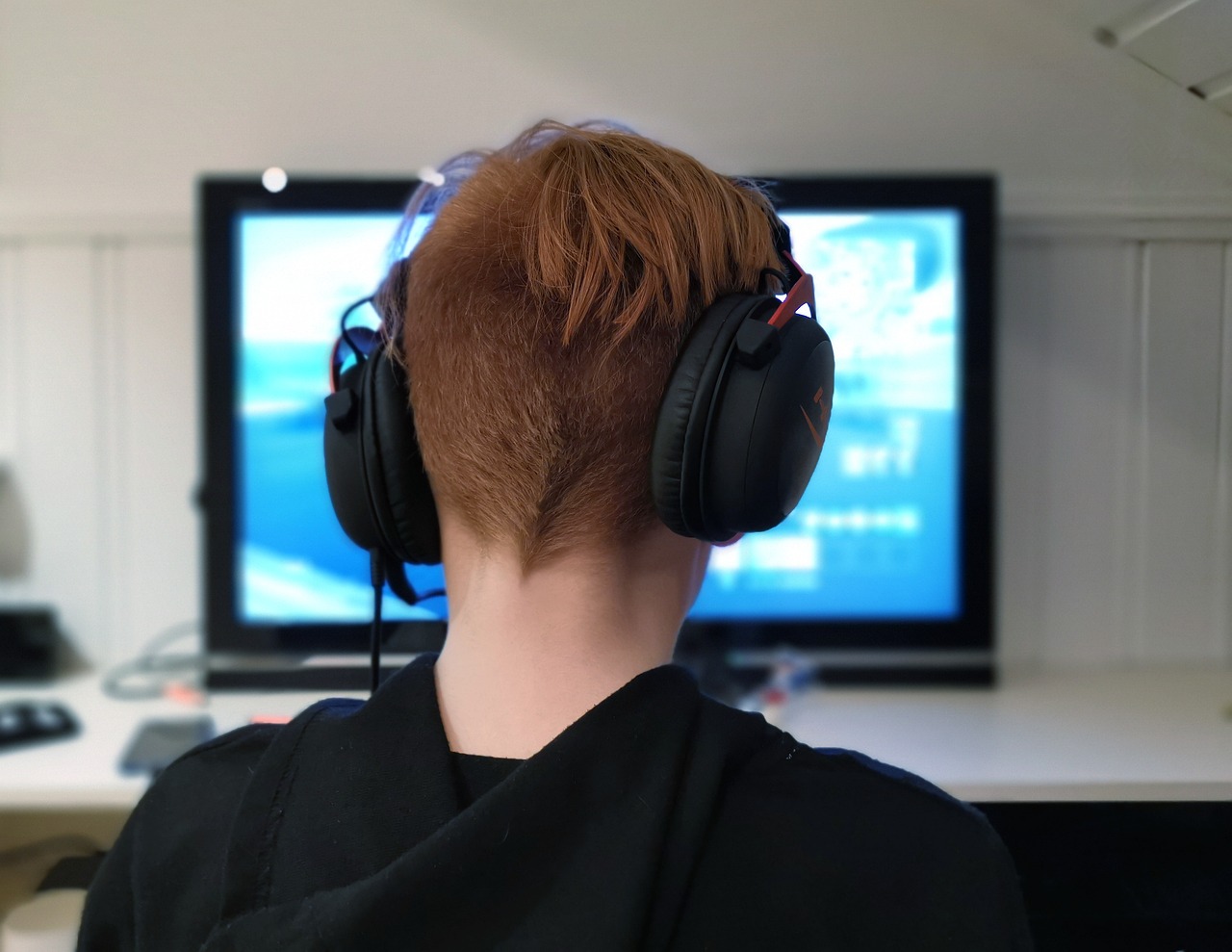New IT Rules: Playing the long game
The Ministry of Electronics and Information Technology (MeitY) notified the Information Technology (Intermediary Guidelines and Digital Media Ethics Code) Amendment Rules, 2023 on April 6, with some key provisions pertaining to online gaming and misinformation. The regulations are expected to provide a stable growth trajectory to the industry, thereby making it more attractive for investment and innovation.

Image Source: Pixabay
Over the past few years, the Indian gaming market has grown at an exponential rate and is predicted to surge to US$ 5 billion by 2025, driven by a compound annual growth rate (CAGR) of 28-30%. Notably, it has the fastest growth rate of New Paying Users (NPUs) globally, increasing from 40% in 2020 to 50% in 2021. The gaming industry in India has reached new heights and the country now has the second-largest gamer base in the world with 396.4 million gamers,. with a projection to hit 500 million by 2025.
In addition to this, India is also the world’s biggest fantasy sports market with a user base of over 13 crores, and the world’s largest mobile gaming market in terms of app downloads. The World Economic Forum attributes India’s gaming industry growth to the growing penetration of mobile devices, which are supported by affordable internet and faster smartphones with enhanced gaming capabilities. All these factors clearly indicate the popularity of gaming in India. However, several state governments started implementing prohibitions on “games of chance” and “online gambling” to curb rising addiction cases.
In view of the same, the new IT notification was issued on April 6 by MeitY, which relates to the Information Technology (IT) Rules of 2021, serving as an amendment to the existing rules. This new notification introduces additional provisions, particularly for online gaming and misinformation, thereby providing a regulatory framework for these areas.
The 2023 amendments to the IT Rules place a strong emphasis on prevention of wagering or betting on the outcome of any online game and prohibiting online gaming intermediaries from hosting or allowing users to host:
(i) An online game that has not been verified as permissible, and
(ii) Advertising or promoting non-permissible online games or intermediaries offering such games.
Elaborating on the new rules at a press conference, Union Minister of State for Electronics and Information Technology Shri Rajeev Chandrasekhar said, “It is Prime Minister Shri Narendra Modi’s vision and goal that young Indians get every opportunity possible to create startups and innovate for the world. Online gaming is certainly a huge opportunity for India and young Indians. We see the Indian online gaming ecosystem expanding and growing into a multi-billion dollar industry and being an important catalyst to India’s One trillion-dollar Digital economy goal by 2025-26, with very clear restrictions on online wagering and betting.”
Industry experts also expressed a positive outlook towards the IT Rules, calling it a beneficial move for the industry as it will provide assurance to legitimate online games, including peer-to-peer gaming. It is hoped that the new rules would create stability and reduce regulatory fragmentation across different states.
What has changed?
Although the 2021 IT Rules covered social media intermediaries, the 2023 amendments have replaced the terms “social media intermediary and significant social media intermediary” with “a social media intermediary, a significant social media intermediary, and an online gaming intermediary.” This amendment expands the scope of the IT Rules to also cover online gaming intermediaries.
Initially, the new rules did not apply to the gaming industry. However, on February 25, 2021, MeitY issued a statement clarifying that online gaming platforms would also be subject to the new rules. The statement indicated that any online game that involves real money transactions or virtual currency exchange would be considered a digital intermediary and would have to comply with the guidelines.
There is some overlap between online games and social media intermediaries, such as games that are accessed or available through social media platforms or those that allow users to share their achievements on social media. The new IT Rules define an online gaming intermediary as any intermediary that enables users to access one or more online games. These new provisions provide a regulatory framework for online gaming and misinformation.
The rules covering social media intermediaries from the previous regulations are still applicable and now also cover online gaming intermediaries, with the addition of a few more clauses. For instance, users are not allowed to wager on the outcome of any game, although they can still play real money online games, which are defined as those where users deposit cash or other valuable consideration with the expectation of earning winnings.
In addition to the above amendments, the rules specify that:
- The intermediary is responsible for ensuring that the content posted on its platform is not obscene, pornographic, paedophilic, invasive of privacy, hate speech, promoting illegal activities, or posing a threat to “the unity, integrity, defence, security, or sovereignty of India.”
- The fact-checking body will be notified by the government soon to carry out the above-stated functions and verify that the intermediary is not hosting non-permissible online real money games or misleading advertisements.
- The amendments equate gambling with any online game that poses harm to the user.
What are SROs and their responsibilities?
The Centre will appoint multiple self-regulatory organisations (SROs), as per the necessity, comprising industry representatives, educationists, and other experts such as child experts, psychology experts, etc. These bodies will be created for the purpose of verifying an online real money game as a permissible online real money game. These SROs will be given the power to declare a game a “permissible online real money game” only after verifying that it does not involve wagering on any outcome and ensuring that the online gaming intermediary and the game are in compliance with the law.
The draft of the IT Rules 2023 outlines specific criteria that organizations must meet to apply for the status of self-regulatory bodies. These conditions include being a company registered under section 8 of the Companies Act, 2013, having a membership that represents the gaming industry, and offering and promoting online games in a responsible manner. Plus, it should have a Board of Directors comprised of individuals of repute without any conflict of interest and with suitable practical experience.
The online gaming intermediary is responsible for displaying a visible verification mark for any real money online game verified by an online gaming self-regulatory body. Before accepting any deposit in cash or kind for a permissible online real money game, the intermediary must identify the user. It is mandatory to verify their identity and provide a clear policy regarding the withdrawal or refund of the user’s deposit, determination and distribution of winnings, and any fees or charges payable by the user.
The self-regulatory bodies must at all times display on their website or mobile application a list of permissible online games, the framework for verifying online games, and current members.
What the future holds?
From gaming to social media, the IT rules have covered a wider section of the growing digital industry. Amendments made to the IT Rules are anticipated to establish a centralized, minimally-intrusive regulatory mechanism, fostering equal opportunities for all skill-based games. The draft gives the Government of India the authority to take appropriate measures toward building a secure and responsible internet. The ultimate aim is to safeguard Indian consumers against illegal offshore gambling and betting while promoting the digital economy.
With clear and transparent regulations, the online gaming industry has the opportunity to now grow in a sustainable manner, attract more and more investors and players and also win customer trust, eventually leading to job creation and economic growth. The regulations serve as a driving force for responsible growth within the industry, making it more appealing to FDI and encouraging further innovation.













Leave a comment